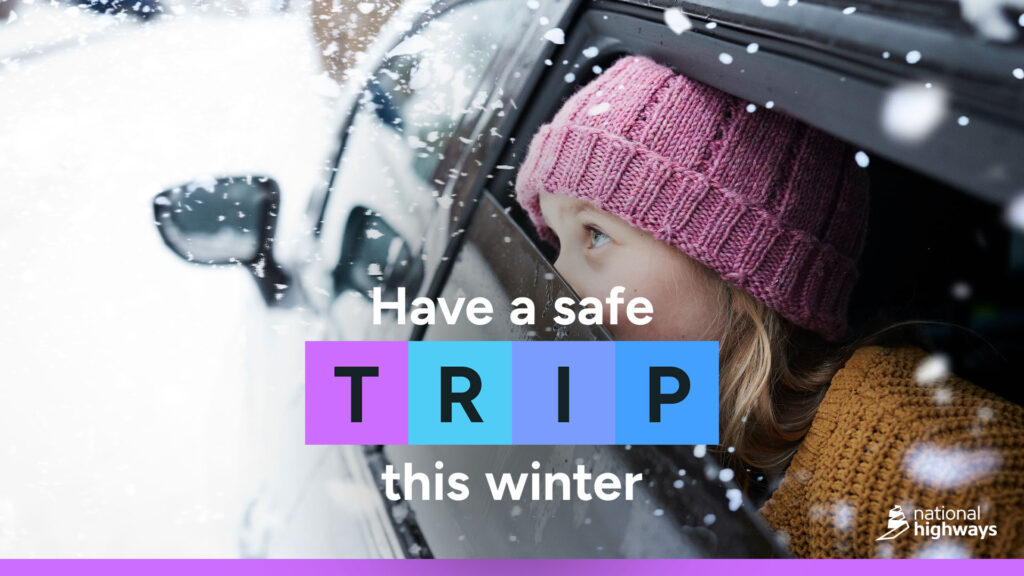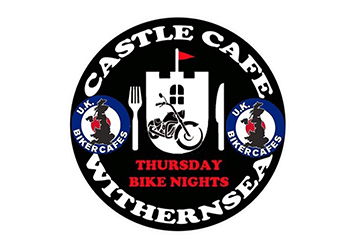With nearly 40% of drivers planning a long journey of more than two hours over the festive break, and winter breakdowns on motorways and major A roads increasing by 22% in the last 5 years, statistics unveiled today by National Highways reveal how surprisingly unprepared many road users are for travel during the winter period.
• Only 34% travel with water, yet nearly two thirds (62%) believe it to be vital
• Only 10% confirmed they have emergency food in their cars, whilst almost half (47%) consider it to be a
• Only half of road users have de-icer in their vehicles, yet almost three quarters (74%) of those surveyed believe they ought to
• A shocking 64% of people travel without extra layers or warm clothes
• Only 21% travel with a fully charged mobile phone, but 60% know they should
National Highways is releasing this data as it launches its annual winter TRIP campaign from Monday (25th November) to encourage drivers to take the necessary precautions as colder weather sets in and road conditions become more challenging with the likes of snow, ice, and rain.
The acronym TRIP promotes four simple steps to prepare drivers using motorways and major A roads this winter:
• Top-up: Fuel, oil, and screen wash
• Rest: Plan regular stops every two hours to avoid driver fatigue
• Inspect: Check tyre pressure and tread
• Prepare: Have a plan for severe weather conditions
Friday, 20th December is expected to be the busiest day on the roads over the festive period, with 7.2 million people planning to travel more than two hours. Drivers are being encouraged to plan and prepare now by packing a winter travel kit including de-icer, an ice scraper, warm clothing, boots, food, water, a torch, and a snow shovel.
Data shows that winter breakdown incidents on major roads have increased by 22% over the last five years, with tyre issues as the top reason (19.1%) followed by loss of power (7.9%)*. National Highways warns that incidents and breakdowns of this kind can hinder its gritters from treating the roads, potentially leading to additional disruptions and delays.
Duncan Smith, Executive Director of Operations at National Highways, said:
“Preparation is key to staying safe during winter journeys and we’re already playing our part by lifting roadworks on key routes in time for Black Friday deliveries next week, helping logistics companies.
“Across the entire winter season, we have Traffic Officers, Control Operators and operations colleagues working around the clock to keep roads accessible, providing a smoother travel experience for all.
“We’re now asking road users to do their bit too. Packing the right essentials and driving cautiously in poor weather can make all the difference. So, if you’re planning to use the roads, check your vehicle, plan ahead, and use our TRIP guidance to get winter ready.”
National Highways has 535 gritters on hand, with over 240,000 tonnes of rock salt held at National Highways-owned salt barns – which is equivalent to 240 million kilograms of salt. For added snow power, all gritters can be fitted with snowploughs if necessary.
In snow and icy conditions, vehicles including HGVs can still lose traction and find it difficult to manoeuvre on steep inclines, which can result in roads getting blocked by stranded heavy vehicles, hindering gritters.
The TRIP initiative is part of National Highways’ ongoing commitment to safer roads, aiming to keep traffic moving smoothly and minimise weather-related incidents.vVisit the National Highways website for more information on staying safe on the roads this winter.



































